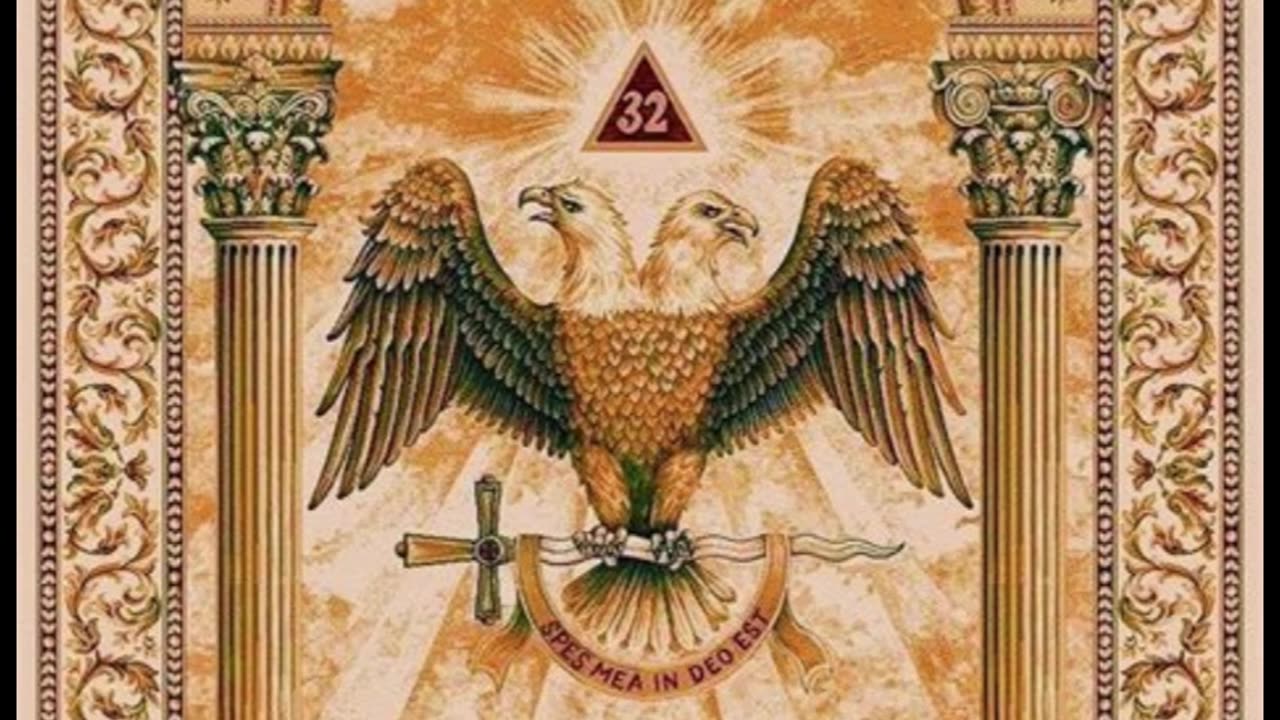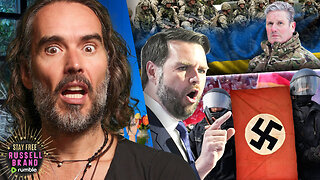Premium Only Content

Humanum Genus (On Freemasonry) April 20, 1884 by Pope Leo XIII - Part 1/4, Sections 1-16
In this opening section of Humanum Genus, Pope Leo XIII lays the groundwork for his critical examination of Freemasonry. Sections 1-16 address several foundational themes:
1. Introduction to the Encyclical
The Pope introduces the document and its purpose, emphasizing the need to address the threats posed by Freemasonry to the Catholic Church and Christian society. He establishes the context for his critique, noting the historical and philosophical background of Freemasonry.
2. Historical Context
Leo XIII provides a historical overview of the rise and influence of Freemasonry, tracing its origins and evolution. He discusses how the Masonic movement emerged and its impact on society and the Church.
3. Philosophical Foundations
The Pope examines the philosophical principles underlying Freemasonry, including its secular and humanistic ideologies. He critiques the Masonic rejection of religious authority and its promotion of a naturalistic worldview.
4. Masonic Principles
Detailed exploration of the core principles and beliefs of Freemasonry is presented. Leo XIII argues that these principles are in direct opposition to Christian doctrine and undermine the Church's teachings.
5. The Church’s Response
Sections 1-16 include a discussion of how the Catholic Church has historically responded to the challenges posed by Freemasonry. Leo XIII outlines previous Church condemnations and the reasons for their necessity.
6. Masonic Influence
The Pope addresses the influence of Freemasonry in various societal institutions, including politics, education, and public life. He warns of the dangers posed by Masonic ideology infiltrating these areas and affecting public morality.
7. Masonic Secrecy and Rituals
Leo XIII criticizes the secretive nature of Masonic practices and rituals, arguing that they are contrary to Christian transparency and truth.
8. Call to Action
The Pope urges the faithful to be vigilant against Masonic influences and to strengthen their commitment to the Church’s teachings. He calls for a united effort to combat the spread of Masonic ideas.
Part 1 sets the stage for a comprehensive critique of Freemasonry, establishing the encyclical’s primary arguments and concerns. It provides a thorough introduction to the themes that will be explored in greater depth in the subsequent parts.
About the Author:
Pope Leo XIII (1810-1903), born Vincenzo Gioacchino Raffaele Luigi Pecci on March 2, 1810, in Carpineto Romano, Italy, served as the 226th Pope of the Roman Catholic Church from 1878 until his death in 1903. His papacy is noted for its significant contributions to Catholic social teaching and its engagement with contemporary social and political issues.
Leo XIII was educated at the Roman Seminary and later at the Pontifical Gregorian University, where he developed a deep understanding of philosophy, theology, and law. He was ordained a priest in 1837 and embarked on a career that saw him rise through various ecclesiastical positions, including bishop of Perugia and cardinal.
Pope Leo XIII is best known for his social encyclicals, particularly *Rerum Novarum* (1891), which addressed the conditions of the working classes and set forth the Church’s stance on social justice, labor rights, and the role of the state in economic matters. This encyclical marked the beginning of modern Catholic social teaching.
His works include substantial theological writings and commentaries on Church doctrine. Humanum Genus (1884), his encyclical against Freemasonry, reflects his concerns about the moral and philosophical challenges posed by secret societies and their influence on society and the Church.
Leo XIII worked to restore the authority of the papacy and the influence of the Church in a rapidly changing world. His papacy was marked by efforts to address modernity, secularism, and the shifting political landscape of the late 19th century.
Leo XIII was known for his opposition to modernist trends within the Church, advocating instead for traditional doctrines and practices. His encyclicals often criticized secularism and liberalism, which he viewed as threats to Christian values.
Humanum Genus specifically addresses his concerns about Freemasonry and other secret societies, which he believed were undermining Christian values and Church authority. His criticism was rooted in a broader defense of Church doctrine against what he saw as subversive influences.
Pope Leo XIII’s papacy left a lasting impact on the Catholic Church’s approach to social issues and its engagement with modernity. His teachings continue to influence Catholic thought on social justice, the role of the Church in public life, and the Church’s relationship with secular ideologies. He died on July 20, 1903, and was succeeded by Pope Pius X.
-
 3:59:19
3:59:19
Deus Meum Que Jus
2 months agoThe Kybalion: A Study of the Hermetic Philosophy of Ancient Egypt and Greece By: The Three Initiates
916 -
 1:29:15
1:29:15
Simply Bitcoin
5 hours ago $6.20 earnedThey JUST Triggered A Global Gold Rush: $1M Bitcoin is coming! | EP 1184
58.5K20 -
 1:50:47
1:50:47
The Quartering
5 hours agoElon Musk's 13th Baby, Trump Attends Daytona 500, and Ramaswamy Enters the Ohio Governor's Race
82.3K28 -
 1:28:04
1:28:04
Russell Brand
5 hours agoBREAKING: UK Troops To Ukraine | Zelensky Wants “Army Of Europe” | JD Vance SLAMS EU Tyranny – SF538
131K45 -
 1:46:20
1:46:20
Benny Johnson
6 hours agoPANIC: Feds FLEE DC After Mass PURGE, Fired USAID Activists EXPOSED | Trump DOMINATES Daytona 500
128K126 -
 1:58:43
1:58:43
The Charlie Kirk Show
4 hours agoCBS Steps In It + Hockey Brawl + Judicial Standoff | Yoo, Schlapp, BigTree | 2.17.2025
129K40 -
 1:01:26
1:01:26
The Dan Bongino Show
7 hours agoTrump Is Cancelling DEI And Cancel Culture (Ep. 2424) - 02/17/2025
850K1.61K -
 1:06:12
1:06:12
Timcast
6 hours agoDemocrat Swamp IMPLODES, CBS Runs DAMAGE Control For Democrats, Gets ROASTED By Elon | Timcast LIVE
165K176 -
 2:00:58
2:00:58
RealAmericasVoice
13 hours agoWAR ROOM WITH STEVE BANNON AM EDITION
136K22 -
 2:59:47
2:59:47
Wendy Bell Radio
12 hours agoAmerica Drops The Gloves
125K66